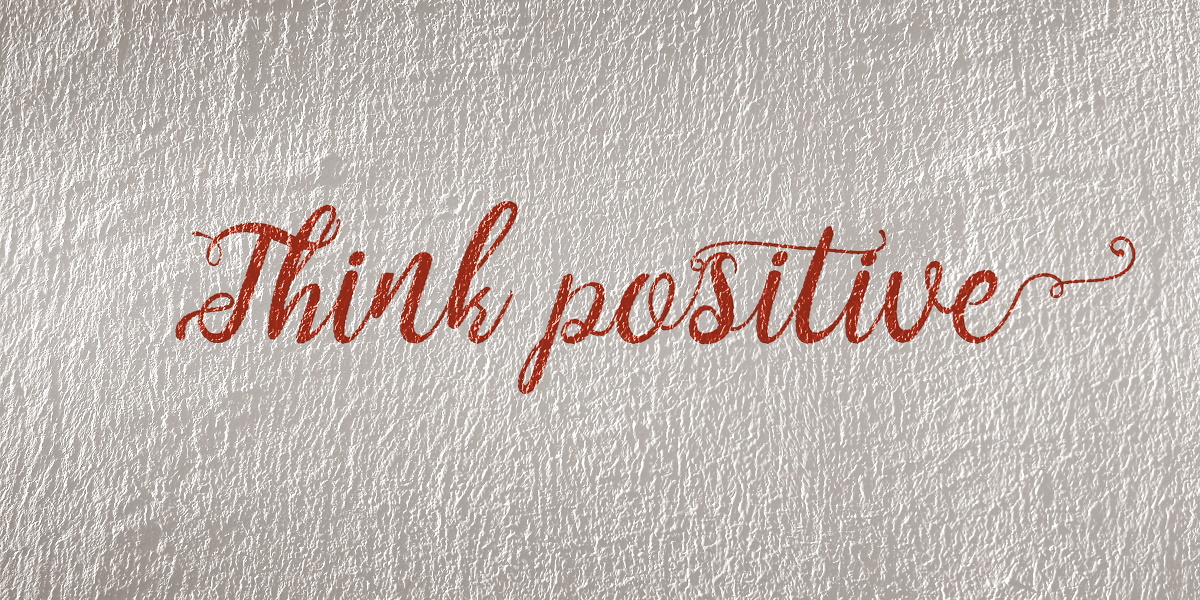
Why we should think positively about challenged mental health
- Sarah Weber
- December 20, 2019
- Comments Off on Why we should think positively about challenged mental health
Links in some blog posts may earn a commission for The Brain Cleanup Coach.
“If you don’t like something, change it; if you can’t change it, change the way you think about it.” – Mary Engelbreit
Photo by Viktor Forgacs on Unsplash
I like to think positively. I challenge myself to find the positive in anything I can. I’ve even done the deep work of trying to find positive aspects of the things us humans have deemed the most tragic parts of our past.
Why do I do this? Because as humans, we have the ability to do this. We have the profound gift to be able to watch how we think, and choose what we think.
Choose your thoughts
This means that you possess the ability to think about the circumstances of your life however you want to. Unfortunately, when we’re young we’re not taught how to do this. We’re taught to think how everybody else thinks. The upside to this is it creates some cohesiveness within the machine that is the society of mankind.
But there’s also a downside to this group think. If it’s normal to think negatively about something, that’s what we all do.
Take mental and brain health for example. For a very long time, we’ve attached stigma to what we consider unhealthy brains. We’ve considered people broken, we find it sad, and we think there’s no other way to think about it.
I don’t think that’s true. I think it’s absolutely possible to change the conversation about mental health and brain diseases, and to think positively about it.
But because it’s normal to think negatively about it, that seems more realistic to people. It seems more responsible (and easier) to agree with the masses.
It’s easy to assume that someone who is thinking positively about something people consider inherently negative is out of touch. Thinking positively is very different than living in a state of denial, and here’s why I think it’s better to think positively.
Emotion drives action
Emotion is what moves the body into action. I like to think of emotion as similar to the quarter dropped into an arcade game or mechanical ride for children. Drop the quarter in, and it suddenly comes to life.
This is what emotion does in our body. It’s the “quarter” that animates the body. And that animation, or action, can look very different from emotion to emotion. Negative emotions typically create the signal to avoid something.
If we THINK negatively about mental and brain health, we then subsequently FEEL bad about it, because thoughts trigger emotions. When we feel negatively about something, we want to avoid it. We start to feel threatened by it, stressed out by it, and want to hide from it.
But think about the actions the positive emotion quarters create. Motivation. Acceptance. Connection. Engagement.
Imagine if we shifted the mindset of the masses to not feel threatened and terrified by mental health and brain disease, but instead accepting of what is, willing to engage with it as it is, and motivated to see people with brain issues not as broken, but whole and just as worthy as someone with what we perceive as a perfectly “healthy” brain.
This is where the power of positive thinking lies. It’s a way to hack the programmed, automatic part of your brain that just follows the crowd because it’s what you were taught to do.
You get to think whatever you want about anything you want.
You don’t have to follow the crowd and think the sad, heavy story the majority of society tells about mental health and brain diseases. If you want you can choose to change the narrative in your mind and think positively, which will open up a space of compassion and respect for anyone in your life that deals with mental or brain health issues, even if that person is you.
Work with me
I LOVE to coach on this subject. It is something I’ve dealt with extensively in my family, and with myself. If you’re looking to change the narrative in your mind in order to change the dynamic with someone in your life that deals with challenged brain health, I can help you do that.
Book a complimentary consultation with me to start exploring the possibilities.
Or, sign up for my email list for twice weekly coaching straight to your inbox.
Or heck, do both!




